Generative AI Governance and How to Tracking Model Lineage & Data provenance
Enhancing Model Governance
Key Components of Model Governance and Tracking Model Lineage & Data provenance
- Model Development Guidelines:
- Documentation: Maintain comprehensive documentation of model objectives, design, assumptions, and limitations.
- Transparency: Ensure transparency in model building, including data sources, preprocessing steps, feature selection, and algorithm choices.
- Model Validation and Testing:
- Validation Frameworks: Implement rigorous validation frameworks to test model performance across different datasets and scenarios.
- Bias and Fairness Checks: Regularly assess models for biases and fairness, ensuring they do not disproportionately affect specific groups.
- Version Control and Monitoring:
- Versioning: Use version control systems to track changes in model development and deployment.
- Performance Monitoring: Continuously monitor model performance in production and compare it with established benchmarks.
- Risk Management:
- Risk Assessment: Conduct regular risk assessments to identify potential risks associated with model usage.
- Mitigation Strategies: Develop and implement strategies to mitigate identified risks.
- Compliance and Ethics:
- Regulatory Compliance: Ensure models comply with relevant laws, regulations, and industry standards.
- Ethical Considerations: Incorporate ethical considerations into model development and deployment processes.
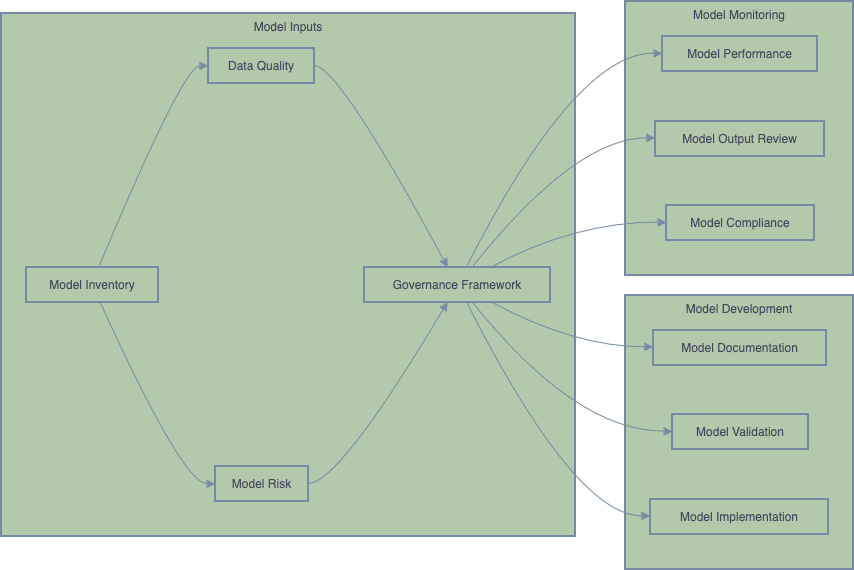 Examples of Enhancing Model Governance:
Examples of Enhancing Model Governance:
- Financial Services:
- Credit Scoring Models: Implementing robust governance frameworks to ensure credit scoring models are fair, transparent, and comply with regulatory standards. Regularly auditing these models to detect and mitigate biases against specific demographics.
- Healthcare:
- Diagnostic Models: Establishing governance practices for AI diagnostic tools to ensure they are accurate, reliable, and ethical. This includes validating models on diverse patient populations and ensuring compliance with healthcare regulations like HIPAA.
- Retail:
- Recommendation Systems: Developing governance frameworks for recommendation algorithms to ensure they respect user privacy, provide fair recommendations, and are transparent about data usage.
- Insurance:
- Fraud Detection Models: Enhancing governance of fraud detection models by implementing strict validation protocols, monitoring for false positives/negatives, and ensuring compliance with insurance industry standards.
- Government and Public Sector:
- Predictive Policing Models: Establishing strong governance to ensure predictive policing models are used ethically, do not perpetuate biases, and comply with legal standards. This includes involving community stakeholders in model development and deployment.
- Human Resources:
- Hiring Algorithms: Implementing governance frameworks to ensure hiring algorithms do not discriminate based on gender, race, or other protected characteristics. Regular audits and bias mitigation strategies are critical components.
Enhancing Model Governance in Practice:
- Framework Development: Create a governance framework that outlines the roles, responsibilities, and processes for model development, validation, deployment, and monitoring.
- Audit Trails: Maintain detailed audit trails of model development and deployment activities to ensure accountability and traceability.
- Automated Monitoring: Use automated tools to continuously monitor model performance and flag any deviations from expected behavior.
- Training and Awareness: Provide training and awareness programs for stakeholders to understand the importance of model governance and their roles in maintaining it.
- Feedback Loops: Establish feedback loops to incorporate insights from model performance and stakeholder feedback into the governance framework for continuous improvement.
By implementing these practices, organizations can enhance model governance, ensuring that their ML models are reliable, ethical, and aligned with their strategic objectives.
About Alert AI
Alert AI is end-to-end, Interoperable Generative AI security platform to help enhance security of Generative AI applications and workflows against potential adversaries, model vulnerabilities, privacy, copyright and legal exposures, sensitive information leaks, Intelligence and data exfiltration, infiltration at training and inference, integrity attacks in AI applications, anomalies detection and enhanced visibility in AI pipelines. forensics, audit,AI governance in AI footprint.
What is at stake AI & Gen AI in Business? We are addressing exactly that.
Generative AI security solution for Healthcare, Insurance, Retail, Banking, Finance, Life Sciences, Manufacturing.
Despite the Security challenges, the promise of Generative AI is enormous.
We are committed to enhance the security of Generative AI applications and workflows in industries and enterprises to reap the benefits .
Alert AI 360 view and Detections
- Alerts and Threat detection in AI footprint
- LLM & Model Vulnerabilities Alerts
- Adversarial ML Alerts
- Prompt, response security and Usage Alerts
- Sensitive content detection Alerts
- Privacy, Copyright and Legal Alerts
- AI application Integrity Threats Detection
- Training, Evaluation, Inference Alerts
- AI visibility, Tracking & Lineage Analysis Alerts
- Pipeline analytics Alerts
- Feedback loop
- AI Forensics
- Compliance Reports
End-to-End Security with
- Data alerts
- Model alerts
- Pipeline alerts
- Evaluation alerts
- Training alerts
- Inference alerts
- Model Vulnerabilities
- Llm vulnerability
- Privacy
- Threats
- Resources
- Environments
- Governance and compliance

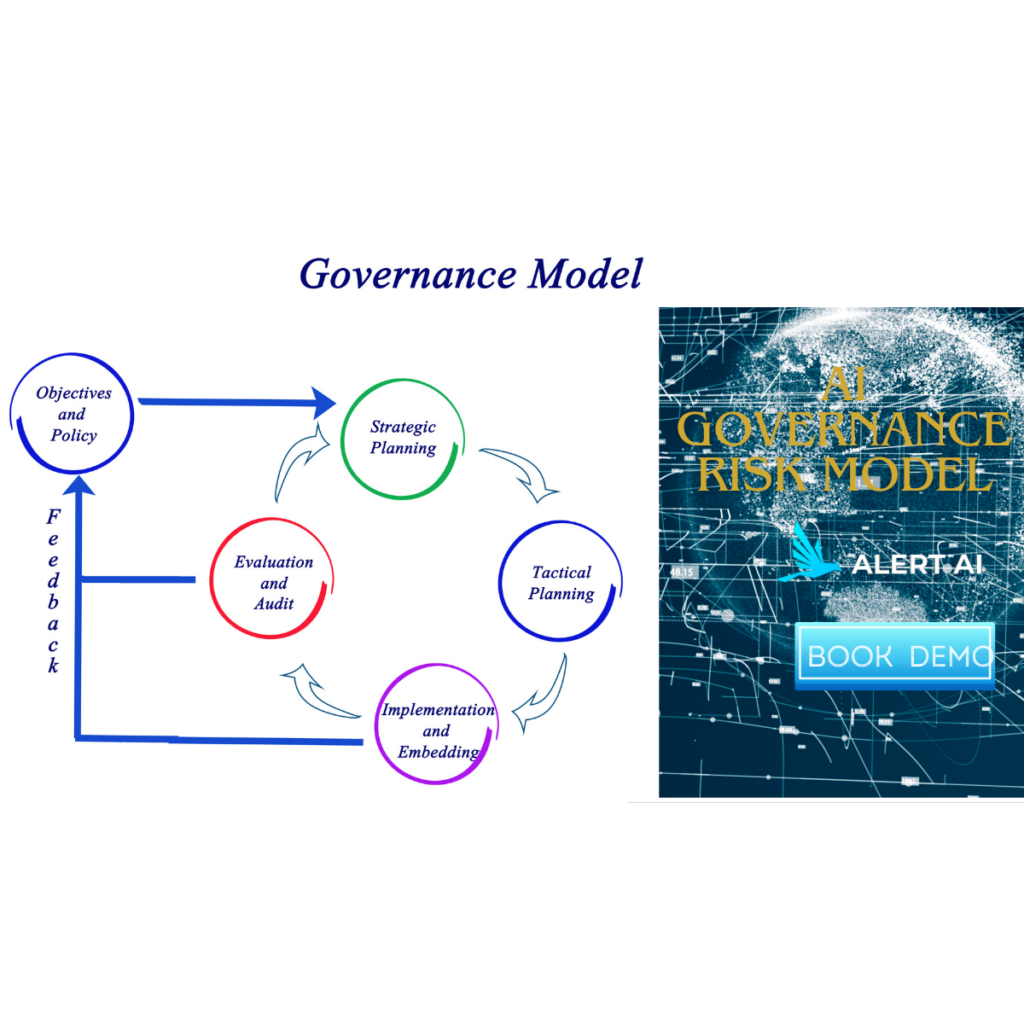
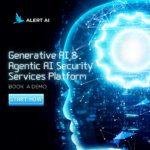


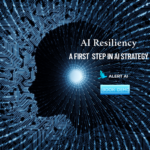





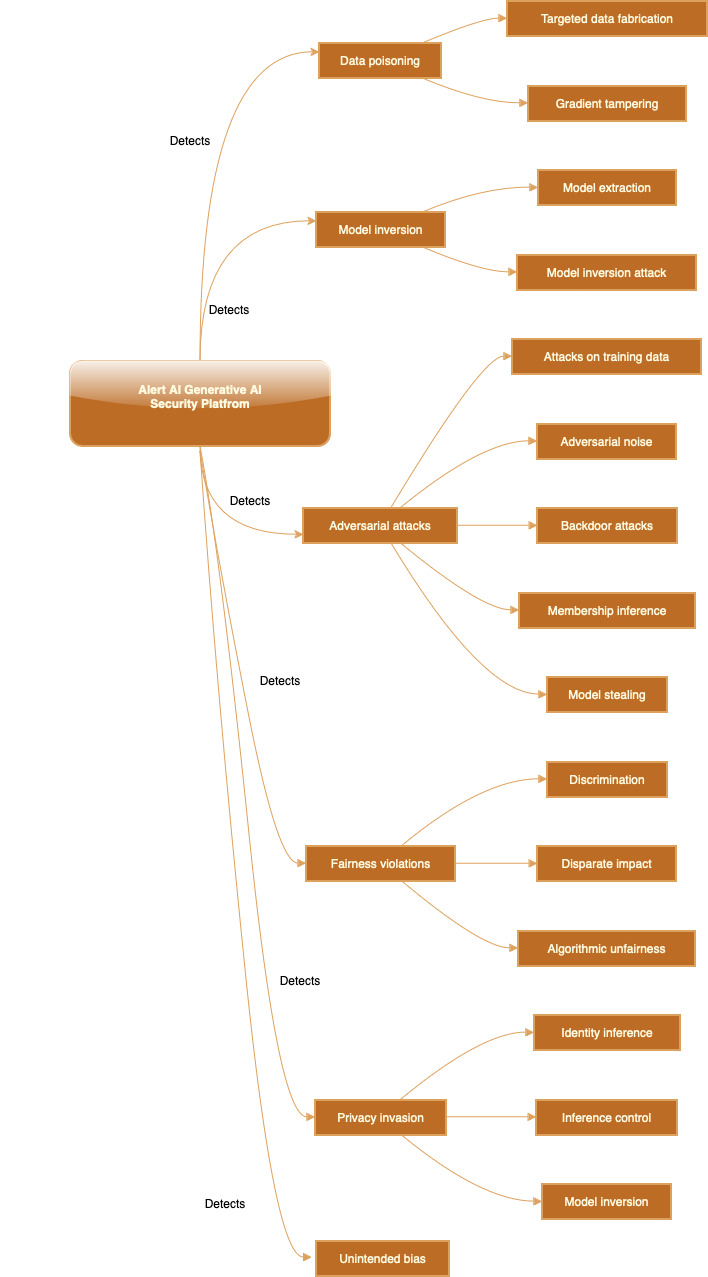
No Comments